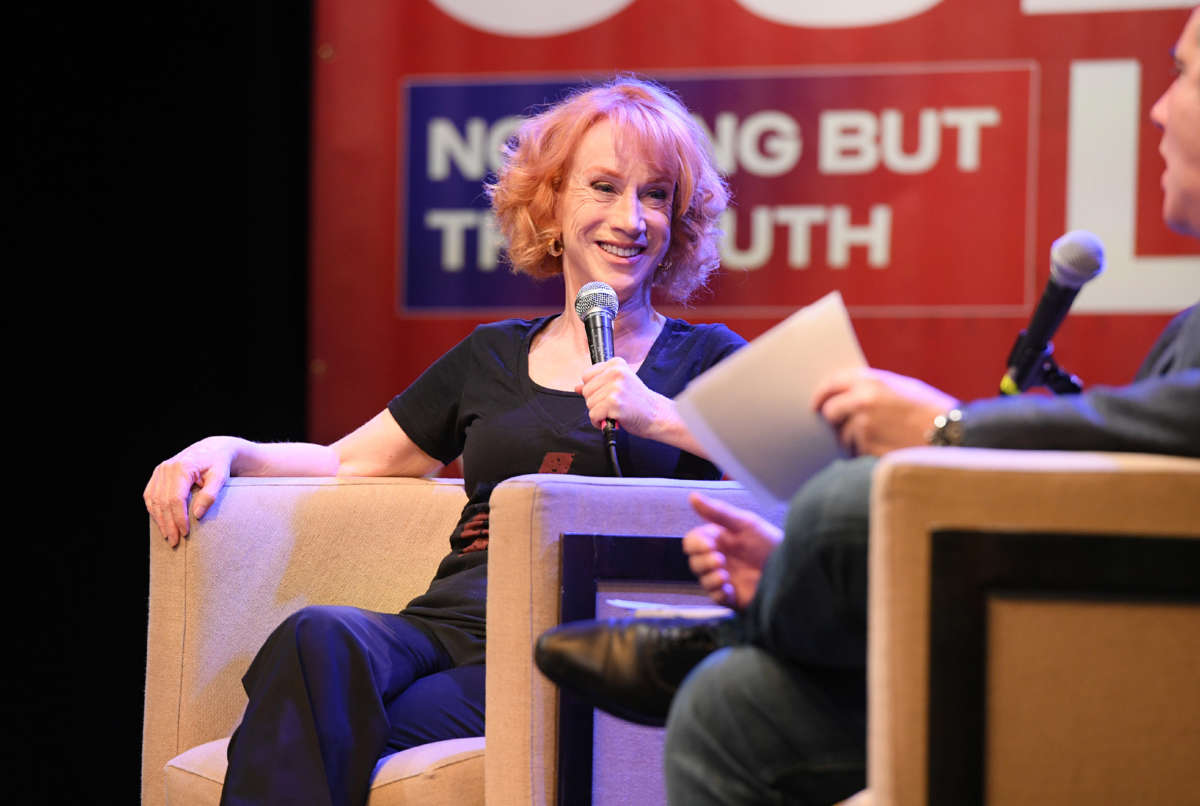On Sunday, Twitter suspended the account of comedian Kathy Griffin hours after she changed her name (though not her user handle) to parody the company’s new CEO, billionaire Elon Musk.
The company hasn’t officially clarified why Griffin was suspended from the site or whether the action will be permanent — but Musk appeared to allude to the comedian’s suspension in a tweet later that day.
“Going forward, any Twitter handles engaging in impersonation without clearly specifying ‘parody’ will be permanently suspended,” Musk wrote in his tweet.
In subsequent tweets, Musk claimed that such restrictions were necessary with the rollout of Twitter Blue, his plan to allow any user to purchase a blue “verified” checkmark for $8.
There “will be no warning” in the future to accounts that engage in parody like Griffin’s, Musk said, adding that, “Any name change at all will cause temporary loss of verified checkmark.”
Twitter has always disallowed impersonating other users on the site to mock them or to make it seem like they’re saying something they’re not. But actions against Griffin and others seem to be personal — and hypocritical — for Musk, as the billionaire has repeatedly promised the site would be aligned with his “free speech absolutist” mentality under his direction. It appears that Musk is primarily enforcing the anti-impersonation policy against accounts that are critical of him, according to NBC News reporter Ben Collins.
After buying Twitter, Musk declared that “comedy is now legal on Twitter.” But it seems as though parodies of Musk are off-limits, reporters have noted.
Parody is a form of comedy in which a person engages in the fictional portrayal of a person or entity. It is often used for social criticism, and has been acknowledged by the Supreme Court as a protected form of free speech since the late 1980s.
Referencing a free speech case that is currently before the High Court, The Onion, a satirical news publication, noted that satire is an effective form of social criticism — and that, by requiring publications to announce that they are parodies, the art form loses its punch.
“For parody to work, it has to plausibly mimic the original,” The Onion stated in its brief to the Court.
Join us in defending the truth before it’s too late
The future of independent journalism is uncertain, and the consequences of losing it are too grave to ignore. To ensure Truthout remains safe, strong, and free, we need to raise $27,000 in the next 24 hours. Every dollar raised goes directly toward the costs of producing news you can trust.
Please give what you can — because by supporting us with a tax-deductible donation, you’re not just preserving a source of news, you’re helping to safeguard what’s left of our democracy.
